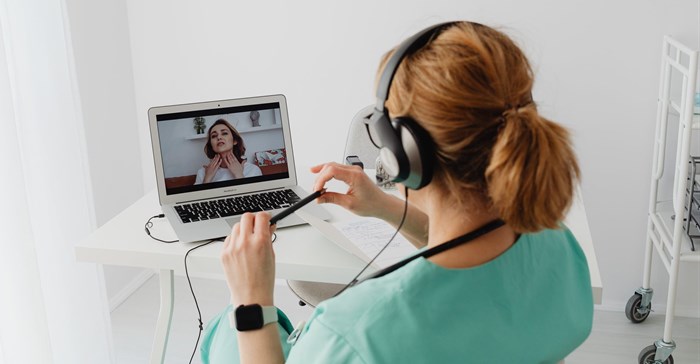
One thing the pandemic taught us is that many things we do in person can be done online – from meetings to straightforward healthcare consultations. Telephonic or video consultations with nurses and doctors help to minimise the time people spend waiting in doctors’ waiting rooms. This in turn minimises their contact with other people who are ill and may be contagious, reduces the amount of time spent on transport to clinics, and is more efficient for basic healthcare needs.
Many pharmacies also now offer medicine deliveries, which can often be ordered easily on a mobile app, again minimising physical contact with others who may be ill, and offering a convenient service for those on chronic medication.
Wearable technology takes virtual consultations to the next level, for example with devices like the TytoHome. This electronic healthcare device allows you to receive on-demand physical exams by means of live video chat with a doctor’s office. It uses an exam camera and a non-contact forehead infrared thermometer and otoscope, stethoscope and tongue depressor adapters. Certain medical aids are offering discounts on these devices, and they are likely to become more commonplace in the future.
With Covid-19 filling up hospital beds and requiring changes to the way we interact, many more doctors have also begun to offer minor surgical procedures from their rooms, rather than requiring patients to be in hospital.
Medical aids have come on board with this, by authorising these procedures from the risk-benefit of the scheme the same as a hospital procedure, so that they do not deplete day-to-day benefits. Gap cover is also having to evolve to cover potential shortfalls on these out-of-hospital procedures.
Covid-19 has acted as a catalyst for digital transformation in the healthcare space, and it has highlighted the fact that home care is often feasible and more desirable than treatment in a hospital. The pandemic has also showcased what happens when hospital beds are at a premium, and innovations are underway to help reduce the pressure on the hospital system.
One example of this is the new Discovery Hospital at Home initiative, which brings hospital-level care to patients in the comfort of their own homes. Using innovative connected technology and monitoring devices to continuously track heart rate, temperature, oxygen and so on, patients are monitored by healthcare professionals remotely, and medicine and food are delivered daily. For many patients, this could be a complete game-changer, from the frail and elderly to cancer patients and those without transport to hospitals.
Digital transformation has the potential to revolutionise healthcare in South Africa because it is less costly and potentially more accessible for millions. For medical schemes and gap-cover providers, this means that they will need to rethink their models to cater to these changes.
However, it could also potentially offer better cover for clients, as it is more cost-effective and sustainable in the long term. Patients will also benefit from more convenient care and reduced contact for less transmissibility of pathogens.